第7章 Chapter (3)
"The next morning we proceeded by order of colonel Grant, to burn down the Indians' cabins. Some of our men seemed to enjoy this cruel work, laughing very heartily at the curling flames, as they mounted loud crackling over the tops of the huts.
But to me it appeared a shocking sight. Poor creatures! thought I, we surely need not grudge you such miserable habitations.
But when we came, according to orders, to cut down the fields of corn, I could scarcely refrain from tears. For who could see the stalks that stood so stately with broad green leaves and gaily tasseled shocks, filled with sweet milky fluid and flour, the staff of life;who, I say, without grief, could see these sacred plants sinking under our swords with all their precious load, to wither and rot untasted in their mourning fields?
"I saw every where around the footsteps of the little Indian children, where they had lately played under the shade of their rustling corn.
No doubt they had often looked up with joy to the swelling shocks, and gladdened when they thought of their abundant cakes for the coming winter.
When we are gone, thought I, they will return, and peeping through the weeds with tearful eyes, will mark the ghastly ruin poured over their homes and happy fields, where they had so often played.
"`Who did this?' they will ask their mothers.
"`The white people did it;' the mothers reply; `the christians did it!'
"Thus for cursed Mammon's sake, the followers of Christ have sown the hellish tares of hatred in the bosoms even of pagan children."The reader will, however, with pleasure remember that these were the dark deeds chiefly of a kingly government.* A gloomy monarch, three thousand miles distant, and rolling in all the pomps and pleasures of three millions of dollars per annum, could hardly be supposed to know what was passing in the American wilds; but Washington had known.
With bleeding heart he had often beheld the red and white men mingling in bloody fight. The horrors of the cruel strife dwelt upon his troubled thoughts; and soon as God gave him power, (AS PRESIDENT OF INDEPENDENT AMERICA,) he immediately adopted that better system which he had learnt from the gospel. His successors, Adams, Jefferson, and Madison, have piously pursued his plan.
In place of the tomahawk, the plough-share is sent to the poor Indians --goods are furnished them at first cost -- letters and morals are taught among their tribes -- and the soul of humanity is rejoiced to see the red and white men meet together like brothers.
--
* This generalization is doubtful for the time of which Weems speaks, and is certainly false for some subsequent periods, in which Great Britain had far better relations with native peoples (as in Canada) than did the United States. -- A. L., 1997.
--
By this god-like policy, the United States have not only saved an immensity of blood and treasure, but are rapidly adding to the population and strength of the country.
Now to return to Marion's letter. -- "After burning twenty towns, and destroying thousands of cornfields,* the army returned to Koewee, where the `Little Carpenter', a Cherokee chief, met colonel Grant and concluded a peace." The troops were then disbanded: and Marion returned to his plantation in St. John's parish, where, with a few well-fed slaves, he continued to till his parental acres, occasionally amusing himself with his gun and fishing rod, of which he was always very fond.
--
* To this day the Indians cannot bear the name of colonel Grant;and whenever they see a drove of horses destroying a corn-field, they call out "Grant, Grant."--